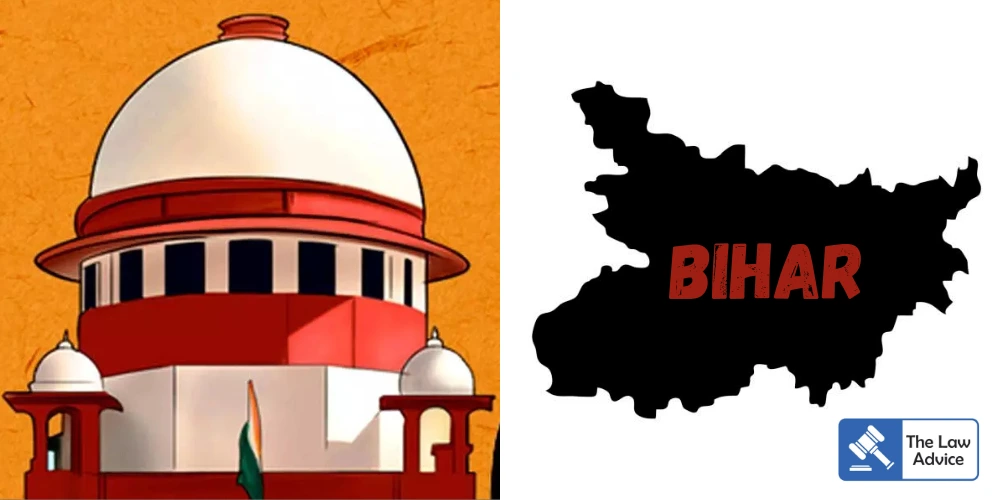
The Supreme Court on Tuesday heard arguments on multiple petitions challenging the Election Commission of India’s (ECI) Special Intensive Revision (SIR) of Bihar’s electoral rolls. The petitions contend that the process is illegal, hasty, and results in mass disenfranchisement by shifting the burden of proving Indian citizenship onto voters.
A Bench comprising Justices Surya Kant and Joymalya Bagchi heard submissions throughout the afternoon.
Senior Advocate Kapil Sibal, appearing for RJD MP Manoj Kumar Jha, argued that approximately 65 lakh voters have been excluded from the draft electoral roll published on August 1 without any objections being raised against their inclusion. Sibal submitted that most residents of Bihar lack the documents prescribed by the ECI — such as birth certificates, passports, and matriculation certificates — and that commonly held documents like Aadhaar and ration cards are not accepted by the Commission.
Justice Surya Kant responded by stating that some form of proof of citizenship is necessary and queried if Aadhaar and ration cards are possessed by the people. Sibal replied that the ECI refuses to accept these documents. He also highlighted that even voters included in the 2003 electoral roll are required to submit fresh enumeration forms, which is a hardship for poor and rural populations unable to file online.
Senior Advocate Rakesh Dwivedi, representing the ECI, clarified that those in the 2003 list and their children need not submit forms, encompassing around 6.5 crore voters. He dismissed the petitioners’ concerns as “speculations” and urged the Court to allow the SIR process to proceed.
Advocate Prashant Bhushan, on behalf of the Association for Democratic Reforms (ADR), criticized the ECI for not publishing the names or reasons for exclusion of the 65 lakh voters. He also stated that the draft rolls were made non-searchable online after August 4, forcing citizens to seek information from political party agents, raising transparency concerns.
Advocate Vrinda Grover argued that the ECI does not have the statutory authority to specify acceptable documents without Parliamentary amendment, and that the current exercise was ultra vires.
Senior Advocate Dr. Abhishek Manu Singhvi contended that voters included in rolls since 2003 enjoy a presumption of citizenship, and the ECI cannot reverse the burden to demand proof from millions of voters within a short timeframe ahead of elections. He referred to the Supreme Court’s 1995 ruling in Lal Babu Hussein v. Electoral Registration Officer to emphasize that citizenship determination is outside the ECI’s remit.
Political activist Yogendra Yadav, appearing in person, claimed that the SIR exercise effectively amounts to mass deletion rather than revision. He noted that Bihar’s adult population is approximately 8.18 crore, yet the electoral rolls show a deficit of nearly 29 lakh voters, which the SIR process is worsening. Yadav also pointed out that more women voters have been deleted than men, despite lower female mortality and migration rates, raising concerns of socio-economic bias.
The ECI’s counsel objected when Yadav presented two individuals allegedly removed from the rolls as “deceased,” suggesting this was theatrics rather than evidence.
Justice Surya Kant acknowledged that inadvertent errors could occur but noted that the SIR exercise provides remedies for corrections. Justice Bagchi reiterated the exercise’s purpose to identify dead or migrated voters.
The petitions challenge the SIR under Section 22 of the Representation of People Act, 1950 and Rule 21-A of the Registration of Electors Rules, 1960, citing inadequate procedural safeguards and hasty implementation. Petitioners seek an immediate stay on the process and propose reliance on the electoral rolls updated earlier in January 2025 as an interim measure.
The hearing will continue on Wednesday.
Website designed, developed and maintained by webexy